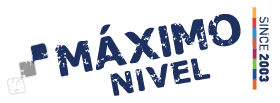Home > Frequently Asked Questions
FAQs
MAXIMO NIVEL FREQUENTLY ASKED QUESTIONS
See answers to the most frequently asked questions about Maximo Nivel’s programs below. If you need help please Contact us or schedule a call with a program advisor.
FAQ: General
Our official School of Record is St. Cloud State University and provides university credit for our Volunteer Abroad, Native Spanish, and International Internship programs.
Maximo Nivel is accredited by the Ministries of Education in Guatemala and Peru. We are a Global Associate member of NAFSA: Association of International Educators; we are recognized for Bildungsurlaub in Germany; we are a member of the Association of Language Travel Organizations (ALTO); and we are a certifying organization for the U.S. President’s Volunteer Service Award.
Maximo works with approximately 1,200 people every year in each of our 3 countries—Costa Rica, Guatemala, and Peru—and these people actively share their experiences on Facebook and Instagram.
Maximo Nivel is also verified by a number of international travel sites including: GoAbroad, GoOverseas, Volunteer Forever, and Working Abroad.
You can chat with us live on our website, email us, or give us a call (1-800-866-6358). We’re always happy to answer your questions.
We can help you see new places and have new experiences. We can help you move beyond your comfort zone, while keeping you comfortable! We’re experts at working with you to create a personalized program that best suits your needs. We’re not a “sending” or “placement” organization-we directly manage your entire program and we’re personally involved in making sure you have a great experience with us in Latin America.
Maximo Nivel never compromises the quality of our programs-we are totally dedicated to client service! Our fees and the way we allocate our expenses are completely transparent and break down of you program fees is available on request.
There are 2 Ways to get university credit:
1) Our School of Record
– Spanish Immersion
– Volunteer Abroad & Service Learning
– International Internships
2) Your University
– Spanish Immersion
– Volunteer Abroad & Service Learning
– International Internships
Our program fees are completely transparent and we’re always happy to provide a breakdown of where your money goes.
Your orientation includes specific details about your program, a health and safety review, and a short walking tour to be sure you’re familiar with the area around the Maximo institute. During your orientation, you also take a Spanish placement exam.
In Costa Rica, Guatemala, and Peru, Maximo Nivel also offers our intensive Native English Program to local students. This means our institutes are filled with local Costa Rican, Guatemalan, and Peruvian students who are studying English with us. Because of this, the Maximo institutes always have a cool local-meets-international vibe!
– Be careful if traveling and watch your belongings when traveling on buses.
– Do not carry your passport, credit card, or excess cash.
– Use only official, registered taxis.
– Do not walk alone at night.
– Avoid any contact with drugs, as laws are very strict in Latin America.
We discuss specific safety precautions and provide you with a walking tour during your in-country orientation.
Note that some of our volunteer projects are based in rural settings and may not have the same level of phone and internet service. At these projects, you must be prepared for slow and/or intermittent service.
The best way to communicate with friends and family back home is via Skype, Facetime, and other web-based services.
In our internship programs, participants are generally the sole intern at their project site; and our Native Spanish Program offers private classes if you prefer to study one-one-one with your instructor.
As a starting point, have a look at these 2 providers:
1) Seven Corners (https://www.sevencorners.com/travel-medical-insurance/#/quote)
2) GEO Blue (www.geobluetravelinsurance.com)
The second answer is: No worries-we can always accommodate last minute registrations.
Our Program Managers work with you to make sure you’re onboard, picked-up safe, and that you’re here in-country, no matter how late you register.
We’ll work with you if you’re registering 12 months in advance or 12 hours in advance. That said, 2 to 3 months is ideal.
Peru-The key to packing for a trip to Peru is to pack for a variety of conditions. The best way to deal with the extremes of Peru-the intense sun during the day, the cold mountain nights, and the heat and humidity of the Amazon Basin is to dress using layers.
Note that Costa Rica, Guatemala, and Peru are quite conservative. Be sure to bring long pants, conservative length shorts, and t-shirts. Short skirts or shorts, small tank tops, and other revealing clothing may attract unwanted attention.
Suggested Packing List-Costa Rica
– Day pack
– Comfortable walking shoes or hiking boots
– Sandals
– 2 pairs of pants (lightweight)
– 3 T-shirts
– 3 short-sleeved shirts
– 1 long-sleeved shirt
– 3 pairs of shorts and bathing suit
– Fleece jacket or sweatshirt
– Hat or cap
– Towel and personal bath kit
– Sun block, lip balm, sun glasses
– Mosquito repellent
Suggested Packing List-Guatemala
– Day pack
– Comfortable walking shoes or hiking boots
– Sandals
– 2 pairs of pants (lightweight)
– 3 T-shirts
– 3 short-sleeved shirts
– 2 long-sleeved shirt
– 2 pairs of shorts and bathing suit
– Fleece jacket or sweatshirt
– Hat or cap
– Towel and personal bath kit
– Sun block, lip balm, sun glasses
– Mosquito repellent
Suggested Packing List-Peru
– Day pack
– Comfortable walking shoes or hiking boots
– Hiking boots
– 2 pairs of pants (lightweight)
– 2 T-shirts
– 1 short-sleeved shirt
– 2 long-sleeved shirts
– 1 pair of shorts
– Thermal underwear
– Fleece jacket
– Hat or cap
– Towel and personal bath kit
– Sun block, lip balm, sun glasses
– Mosquito repellent (jungle only)
Suggested Packing List-Study Materials
– Laptop computer (optional)
– Tablet
– Notebook and pen
– Spanish-English dictionary
– Family-stay (shared room)
– Family-stay (private room)
– Student Residence
– Apartment (private)
– Hostel (shared room)
– Hostel (private room)
– Hotel (private room)
Each type of accommodation offers different amenities, but all are comfortably furnished with 24-hour hot water and excellent security. Depending on your preferences, rooms may be shared or private, though bathrooms are generally shared. Breakfast and dinner are provided seven days a week at all family-stays. Laundry services are offered for an additional fee or you can choose to use inexpensive “wash-and-fold” services that are available near Maximo’s institutes.
If you are on regular medication at home, it is a good idea to bring enough supplies to last through the end of your visit. Though you can easily visit a pharmacy in Costa Rica, Guatemala, and Peru, the same brands and specific medications that you have at home may not be available. Please be sure to see your physician for specific recommendations.
Some specialized volunteer programs, such as certain medical and healthcare placements and some of our International Internships require you to have an intermediate level of Spanish.
We recommend Spanish classes and taking part in our free Tandem Conversation Program. These are great programs and they significantly contribute to your travels and how well you integrate into the local culture.
In Costa Rica, participants can hike up volcanoes, go whitewater rafting, and take a trip to the Pacific or Caribbean coasts. At the beach, you can scuba, surf, snorkel, and body board; or stick to land and explore the National Park in Manuel Antonio, including hiking, adventure tours, and zip-lining. In and around San Jose, you can take a city tour, go to the National Theatre, visit the central market, and hike through cloud forests and waterfall gardens.
In Guatemala, there is plenty to see and do including cultural events, tours, treks, mountain biking, and outdoor markets. Just outside of Antigua, explore coffee farms, volcanoes, and both Mayan and colonial ruins. Participants can also visit beautiful Lake Atitlan, Semuc Champey, and the famous Tikal archaeological site.
In Peru, the Cusco area offers a huge variety of historical sites along with epic treks and cultural tours. Most commonly, people like to explore the Sacred Valley, Lake Titicaca, and of course Machu Picchu. You can also take part in a mix of Inca and Catholic festivals.
– Early pay discount
– In-country discount (TEFL course and Spanish programs)
– Spanish program discount (for volunteers)
– TEFL certification discount (for volunteers)
– 11th person free discount (for groups)
Contact us to learn what discounts may apply to your program.
1) Basic
2) High Basic
3) Pre-Intermediate I
4) Pre-Intermediate II
5) Intermediate I
6) Intermediate II
7) Advanced I
8) Advanced II
9) Fluency I
10) Fluency II
Spanish courses available for university credit include:
– SPAN 101: Beginning Spanish I (4 credits)
– SPAN 102: Beginning Spanish II (4 credits)
– SPAN 103: Beginning Intense Spanish I & II (4-8 credits)
– SPAN 200: Beginning Spanish Conversation (4 credits)
– SPAN 201: Intermediate Spanish I (4 credits)
– SPAN 202: Intermediate Spanish II (4 credits)
– SPAN 203: Intermediate Intense Spanish I & II (4-8 credits)
We also offer specialized courses in Business Spanish, Medical Spanish, and Spanish for Law Enforcement.
Our Native Spanish Programs is separated into week-long modules; you may enroll for as many consecutive weeks as you would like. Classes are offered year-round. Small group classes begin every Monday; private classes can begin any day of the week.
FAQ: Volunteer Abroad
Volunteer abroad program types include:
– Animal Care
– Conservation
– Construction
– Eco-Agriculture
– Indigenous Communities
– Medical & Healthcare
– Teaching English
– Working with Kids
Note that some of our medical projects require more specific education and experience, such as relevant training and education in the medical field. You must present documentation of your qualifications prior to starting the program.
1) Deliver a great volunteer experience.
2) Improve impact at our project sites.
Volunteers are led by our in-country Field Managers who facilitate your volunteer experience. Field Managers are there to guide you and help you integrate at your project and to make sure you’re productive and stay committed even when obstacles inevitably arise. Maximo’s Field Managers also introduce you to what we call “structure,” which is how we define the work stations and tasks at our social projects.
Volunteer work hours are organized in AM shifts (8:00am to 12:00pm)and PM shifts (1:00pm to 5:00pm. Each shift is 3 to 4 hours long. Note that actual working hours are approximate and vary by project and by country.
The Maximo team works hard to make sure you have a safe, impactful, and meaningful volunteer experience.
Yes-a criminal background check is required if you’re participating in our Volunteer Abroad program. Volunteers join us from all over the world, so there is no single process to get your background check, because it varies from country to country. As a first step, you should check online or contact your local police station to find out what the process is in your country.
Background Check Site Links
Australia: Policecheckexpress.com.au
Canada: Backcheck.net
France: Justice.gouv.fr
New Zealand: Justice.govt.nz
UK: Mygov.scot
USA: Sentrylink.com
If you need additional help, just let us know.
FAQ: TEFL Certification
Some people who are new to ESL, might think, “I speak English. I went to university. I’m sure I can teach English; after all, what could be so difficult about teaching my own language?”
However, what might seem easy on the surface is actually far more daunting. For example, ask yourself the following questions…
– If I stepped into a classroom in Lima, Peru; Tokyo, Japan; or Florence, Italy tomorrow, would I be able to communicate with my learners? Would I have the skills to teach English to basic, intermediate, and advanced learners for 5 to 6 hours per day?
– Do I know how to manage and communicate to a class of 15 to 30 non-native English speakers? What if they speak zero English and I don’t speak their language-where would I begin?
– Do I know how to design lesson plans? Do I know the correct methodology and sequence for correcting learners’ errors? Do I know at least 20 classroom activities that definitely engage my learners and get them speaking in English?
– Would I be a good enough teacher that my employer could ethically charge $20.00, $30.00 or even $40.00 per hour for me to teach English to the vice president of a major corporation?
Language teaching is a challenging job. It requires creativity, patience, and knowledge of language learning theory and language teaching techniques. Simply knowing English is insufficient if you plan to teach English in South America, Asia, Europe, or anywhere else in the world. Language schools and professional institutes want teachers who are qualified, experienced, and who have practical training in the methodology of teaching English as a second language.
The TEFL Certification Program is a 12-Module course that provides you with an important set of competencies required to effectively teach English to second language learners.
TEFL COURSE MODULES
1. Approaches to Learning & Teaching
2. Critical ESL Techniques
3. Class Management
4. Lesson Planning
5. English Grammar Review 1
6. English Grammar Review 2
7. Teaching Grammar
8. Teaching Vocabulary
9. Teaching English with Games
10. Teaching Speaking & Writing
11. Teaching Listening & Reading
12. Assessing Learners
13. Introduction to International English Exams
Final assessment is based on the following:
Practical Teaching-50%
Written Assignments-20%
Practical Teaching Lesson Plans-10%
Class Participation-20%
On completion of the course, TEFL participants are awarded grades as follows:
– Pass/Excellent
– Pass/Good
– Pass/Satisfactory
– Fail
Even though it is an intensive and challenging course, the majority of our TEFL participants (around 95%) pass the TEFL course on their first try. Overall, 60% are awarded a grade of Pass/Good, 5% receive a grade of Pass/Excellent, and 30% receive a grade of Pass/Satisfactory.
English teaching jobs are found in every country and in virtually every region of the world-Latin America, Europe, Asia, and the Middle East. There is also high demand for professional ESL instructors in English-speaking countries such as the U.S., UK, Australia, New Zealand, and South Africa.
We give preference to the top-performing participants in each graduating class and they have their choice of employment opportunities at our institutes in Costa Rica, Guatemala and Peru. Every month Maximo Nivel makes 3 to 5 employment offers to our TEFL program graduates.
In Latin America, ESL teacher salaries can appear very low at first, but remember the cost of living in places like Peru and Guatemala are very inexpensive. Most ESL teachers can earn enough to pay for a decent apartment (shared) and enough to cover food and other normal expenses, and travel by public transportation. Note that frugal teachers can likely save between $50 to $100 per month, but this depends a great deal on your personal spending habits.
In Europe, teacher salaries are enough to cover basic expenses, travel by public transportation and have some extra money to travel, but you won’t be able to save much.
In Asia, ESL teacher salaries are quite good and teaching contracts typically include housing. Teaching here, you can save up to $200 to $500 per month. In countries like Thailand, salaries are still relatively low, but so is the cost of living; and in countries like South Korea, salaries can actually be quite lucrative. In South Korea, be ready to teach large groups of children in public and private schools for at least your first year.
In the Middle East, ESL teacher salaries in the UAE, Saudi Arabia, Kuwait, Qatar and Bahrain are the highest in the world, often ranging from $2,000 to $4,000 per month or even more. Benefits at these jobs are also quite generous including free housing, paid vacation, health insurance and flights to/from your home country. Note that the cultural transition and feelings of isolation can make these positions feel quite tough and lonely for some teachers.
Note that private clients are often a great source of extra income for ESL teachers. However, you must be careful to know the rules of the institute you’re working for, because many schools prohibit their teachers from teaching outside students.
In terms of career prospects, it can be more difficult to find employment if you are under 21 and over 65. Preferred age depends very much on the country, the culture, the school, and the type of students the school has; legal requirements in terms of visas may also play a part. Some schools prefer more mature teachers, especially if their students are primarily business people. Other schools feel that younger teachers are more in-tune with their learners’ needs.
Don’t let the question of age put you off. With the Maximo Nivel TEFL certificate, you can definitely find a good ESL teaching job.
Generally speaking, if you have earned a TEFL certificate from Maximo Nivel, the fact that you’re not a native speaker shouldn’t be a major problem. In many other countries, your English fluency and TEFL certificate will be welcome additions to any teaching staff! That said, non-native English speakers may not be accepted in some countries-for example, South Korea requires that your passport be from a native English-speaking country.
We also offer an Online TEFL certification program that can take between 3 to 8 weeks, depending on how quickly you move through the material.
To work legally in a foreign country, you need a work permit. That said, it is common practice for ESL teachers to work all over the world with only a tourist visa. When registering for the TEFL course, our Program Managers help you understand all the ins-and-outs and considerations in terms of work visas.
International Internship project types include:
– Dental
– Education (K-12)
– Special Education
– Medical
– Micro-Business
– Hospitality & Tourism
– Human Rights
– Veterinary
– Customized Internships
Maximo Nivel’s internship programs are offered in 2 formats:
1) 4 week Internship
2) 8 week Internship
Additional weeks can be added to extend your internship program for as long as you need.
4-Week Internship
– 4-6 hours daily of practical work, Monday-Friday
– 1-hour private Spanish classes, Monday-Friday
– Final deliverable requires a 1-hour presentation or 10-20 page final report
– All additional requirements from your university
8-Week Internship
– 4-6 hours daily of practical work, Monday-Friday
– 1-hour private Spanish classes, Monday-Friday
– Weekly journal entries (1-2 page reflections)
– Final deliverable requires a 1-hour presentation and 10-20 page final report.
– All additional requirements from your university
Every intern has an internship advisor who is a senior member of Maximo Nivel’s in-country team-this is usually the Country Manager, Director of International Programs, or the Director of Academics. In the field, interns are led by our in-country Field Managers who, along with your project site staff, facilitate your internship experience. Field Managers are there to guide you and help you integrate at your internship and to make sure you’re productive and stay committed even when obstacles inevitably arise.
Your final internship presentation is delivered to a small board of people consisting of your internship advisor, your onsite project manager, and other staff from Maximo and your project site.
Our Adventure & Culture programs include:
– Gap Year
– Surf School
– Scuba certification
– Mini Adventure
– Volunteer Adventure
– Yoga Instructor Certification
Spanish classes include all levels from Basic to Fluency.
Volunteer program (service learning) options include:
– Animal Care
– Conservation
– Construction
– Eco-agriculture
– Indigenous Communities
– Medical & Healthcare
– Teaching English
– Working with Kids
Learn more about Maximo Nivel’s Gap Year programs.
We work especially well with beginners and intermediate surfers who are looking to uptick their skills.












